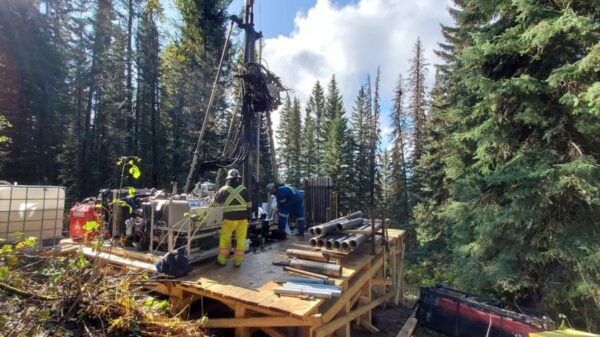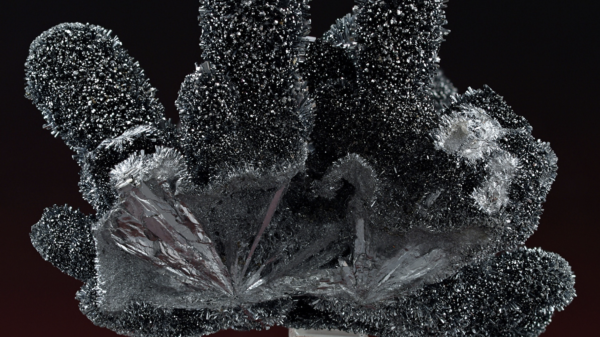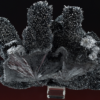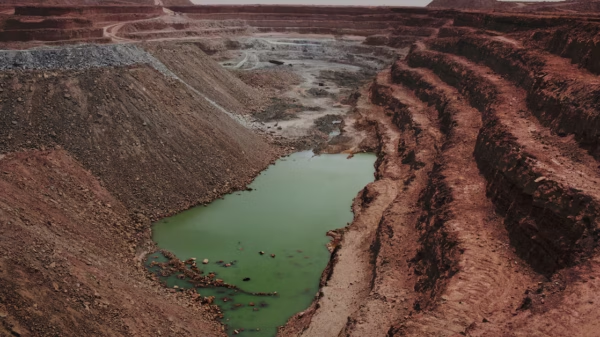Namibia may be the next country to nationalize some of its natural resources and own a minority equity interest in mining and petroleum companies.
On Monday, Mines and Energy Minister Tom Alweendo said during the ‘Maximising Mining and Energy Potentials’ workshop in Swakopmund that the country would benefit from nationalizing some of its natural resources given the rise in demand for raw materials globally.
“In the mining sector, because of the energy transition brought about by the global undertaking to address the effects of climate change, there is now a global demand for critical raw materials and metals,” Alweendo said during the workshop.
“Some of these minerals, such as lithium, are available in our country.”
Alweendo said that the country is contemplating a minerals exploration fund which could be financed by a portion of the royalties paid by mining companies. The fund could then be used to support Namibian entrepreneurs that want to invest in the sector.
“We are making a case that local ownership must start with the state, which holds ownership of our natural resources,” Alweendo told lawmakers.
“The proposed state ownership should take the form where the state owns a minimum equity percentage in all mining companies and petroleum production, for which it does not have to pay,” he said.
Stocks dip after nationalization commentary
The announcement caused a dip in stocks of Australian companies such as Paladin Energy Ltd (ASX:PDN) (OTCQX:PALAF) which saw a 20 per cent dip in its stock following news reports quoting Minister Alweendo.
On Tuesday, the company announced it was halting trading temporarily until June 1. Last Tuesday, company stock dropped from AUD$0.66 to AUD$0.54 and saw its lowest this week on Wednesday at AUD$0.52. Paladin was able to partly bounce back from the 20 per cent dip and showed a decrease of 6.2 per cent on Thursday to AUD$0.60 on the Australian Stock Exchange.
“Paladin has a regular ongoing dialogue with all relevant Namibian Government Ministries as it progresses with the restart of mining activities at the Langer Heinrich Mine,” said Paladin in a statement on Wednesday.
The company confirmed that it is not aware of any imminent proposed Namibian legislative changes that would affect the ownership of the Langer Heinrich Mine, in which Paladin holds a 75 per cent interest.
Namibia is a major uranium producer which comes from the mines Rossing, Husab and Langer Heinrich.
Paladin owns 75 per cent of the Langer Heinrich mine, which has been shut down since August 2018 but is the subject of a USD$118 million restart effort. Paladin’s partner in Langer Heinrich is the China National Nuclear Corporation.
Husab and Rossing are also run by Chinese companies, the China General Nuclear Power Group and China National Uranium Corporation.
Other companies operating in the region include the uranium producer Bannerman Energy (ASX: BMN) (OTCQX: BNNLF) (NSX: BMN), Deep Yellow Limited (ASX: DYL), TotalEnergies (EPA :TTE) and Shell PLC (LON:SHEL).
Paladin wasn’t the only company that saw a dip in its stock after the announcement. Deep Yellow had a dip in its stock this week from AUD$0.60 to AUD$0.50 on the Australian Stock Exchange. However, its stock went up Thursday by 5.8 per cent to $0.64.
The company reassured investors on Tuesday afternoon saying there is no indication of moves against Deep Yellow’s three projects in Namibia.
Deep Yellow owns 100 per cent of the Tumas project, 39.5 per cent of the Nova joint venture with JOGMEC, a Japanese government agency and 85 per cent of Yellow Dune.
Read more: Chile passes tax reform targeting mining giants, awaits president’s signature
Read more: Chile announces plans to nationalize its lithium industry
Alweendo revokes lithium mining license
According to local reports, Alweendo recently revoked a 20-year mining license of the lithium mining company Xinfeng Investments because of fraudulent and misleading statements and using plagiarised material when it applied for a mining licence. The license was granted in September last year.
The Chinese-owned company is claiming that Alweendo’s decision to revoke its 20-year mining licence, was “unlawful, invalid and unconstitutional”.
The company is arguing that after Alweendo granted Xinfeng a mining licence for a period of 20 years the decision was final and he could not decide to revoke it.
The ministry directed the company to stop all operations by the end of May.














